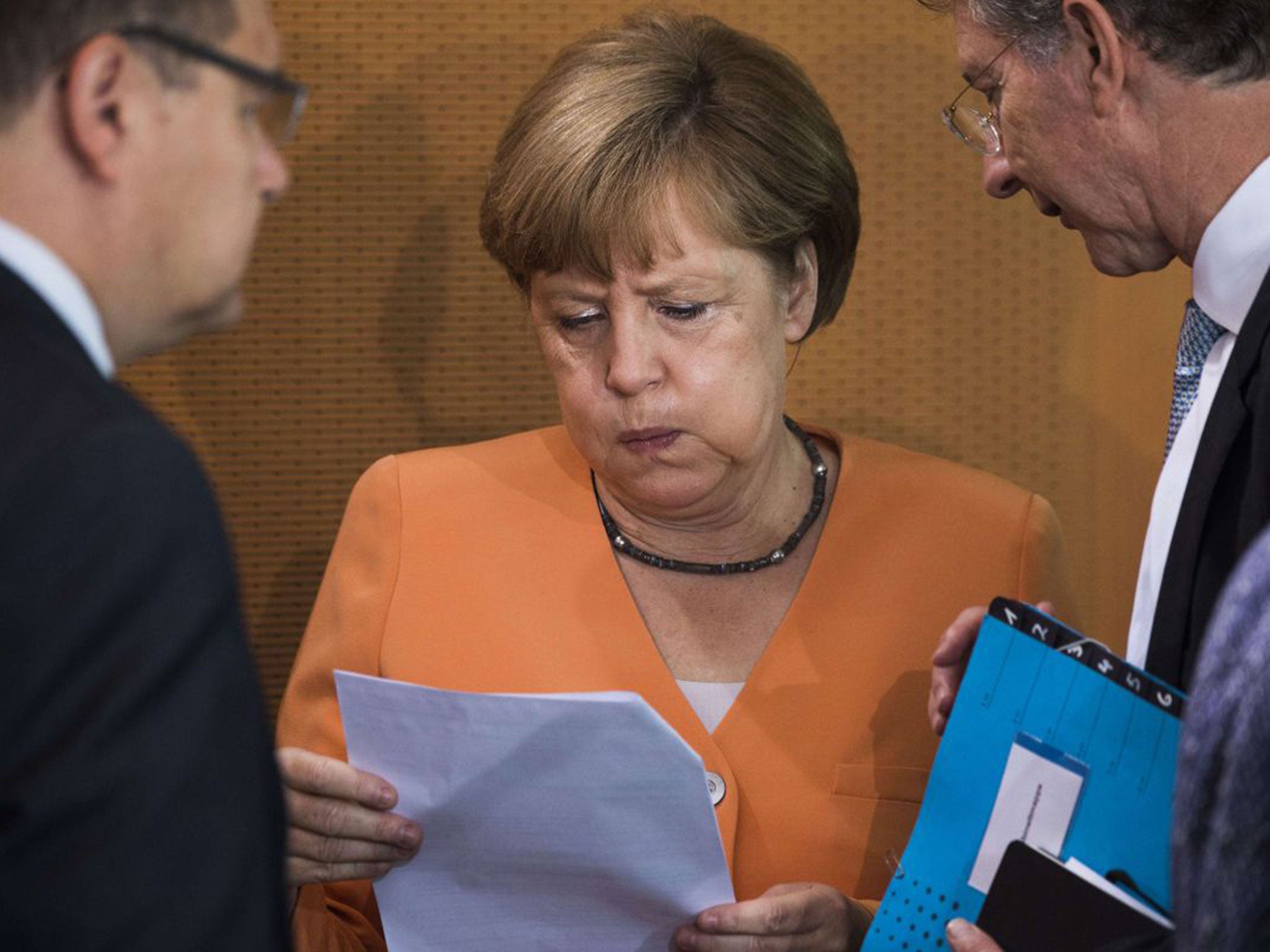Greece crisis: Angela Merkel refuses to negotiate on Tsipras bailout proposals before Sunday referendum
"Compromise at any cost is not possible," Merkel said

Your support helps us to tell the story
From reproductive rights to climate change to Big Tech, The Independent is on the ground when the story is developing. Whether it's investigating the financials of Elon Musk's pro-Trump PAC or producing our latest documentary, 'The A Word', which shines a light on the American women fighting for reproductive rights, we know how important it is to parse out the facts from the messaging.
At such a critical moment in US history, we need reporters on the ground. Your donation allows us to keep sending journalists to speak to both sides of the story.
The Independent is trusted by Americans across the entire political spectrum. And unlike many other quality news outlets, we choose not to lock Americans out of our reporting and analysis with paywalls. We believe quality journalism should be available to everyone, paid for by those who can afford it.
Your support makes all the difference.Angela Merkel has said there will be no further negotiations on a bailout package for the Greek government until after Sunday’s referendum on whether the public want to accept austerity measures in return for further emergency aid.
"Compromise at any cost is not possible," Merkel said at the Bundestag on Wednesday. "Otherwise Europe will be lost."
She said the door remains open for Greek talks, but that any further talks would have to involve the IMF.
"We owe it to the Greek people," she said.
She added that the issue at stake was more than a loan of several billion euros. "This is fundamentally about how the EU can stay competitive in the world," she said.
Francois Holland, the French President, has said a deal must come now. "A deal must come now, it cannot be delayed, we've been waiting for so long," he said. "If it doesn't happen, if we have to wait for a referendum, there is always a risk ... that we would enter a period of turmoil and enter into the unknown. It's better to be sure than to leap into the void."
Other European officials have already discredited the referendum. Thorbjorn Jagland, the secretary general of the Council of Europe, which promotes co-operation between European countries, said that at least two weeks were needed to plan a referendum properly.
The vote "has been called on such a short notice, that this in itself is a major problem," Jagland said Wednesday by phone from Lisbon, Portugal, according to The Telegraph. "And also the fact that the questions that are put to the people ... are not very clear."
A poll on Tuesday showed that most Greeks will still vote 'no' to the bailout terms proposed by the troika, though public opinion has warmed towards the proposals since the banks closed earlier this week.
Speculation was rife that Tsipras would cancel the referendum by Wednesday.
Join our commenting forum
Join thought-provoking conversations, follow other Independent readers and see their replies
Comments